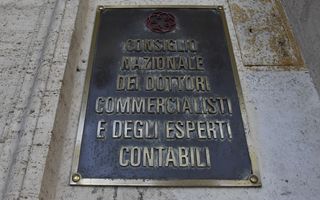(Finance) – “We are aware that the current situation does not allow much room for manoeuvre. In the hope that the efforts made by the government will allow an improvement in the macroeconomic framework during the year, we believe that the refinancing of interventions, already planned for the current year, such as the cut in the tax wedge in favor of employees with incomes up to 35 thousand euros, the reduction of Irpef for taxpayers with incomes up to 28 thousand euros as well as the super-deduction for the new hiring of permanent employees. Furthermore, compatibly with any additional resources that may be available, the fiscal measures that we consider priority concern interventions in favor of the middle class and building bonuses”.
This is what was stated today by Cnational council of accountants during a parliamentary hearing on the DEF. The delegation of professionals, composed of the National Councilor Rosa D’Angiolella and Pasquale Saggese, coordinator of the tax area of the National Foundation of the category, stated that they believed “a more stable and long-lasting incentive policy for new business investments and professionals as well as, more generally, the completion of the implementation phase of the tax reform which undoubtedly represents a fundamental turning point for improving the attractiveness and competitiveness of our country”.
On the subject of IRPEF rates, D’Angiolella he argued that “a possible intervention in favor of the middle class, to be modulated according to the available resources, could involve an expansion of the second income bracket, the one with a 35% rate, from 50 thousand to 70 thousand euros”. “Such a measure – she explained – would be neutral with respect to the various types of income and, therefore, would respect the principle of horizontal equity. The intervention would certainly have a cost, but it would still be contained within a maximum limit of 160 euros per taxpayer (equal to the tax reduction of 8% on a maximum of 20 thousand euros), so it is certainly preferable to a possible reduction of the 43% rate, which would have significantly higher costs, since in this case the entire portion of income exceeding 50 thousand euros would benefit from the lower rate rather than just that from 50 thousand to 70 thousand euros. Furthermore, the intervention could be graduated over time, increasing the maximum threshold of the income bracket to which the 35% can be applied, as the resources become available”.
On building bonuses, D’Angiolella underlined how “the end of the 110% Superbonus season to the benefit of all, it is certainly acceptable, but the preconceived criticism of technical mechanisms such as the invoice discount and the transfer of tax credit does not appear acceptable. It seems reasonable to hypothesize – he added – a further use of the PNRR resources for their re-proposal aimed at the redevelopment of poorly performing buildings in terms of energy efficiency and for the benefit of the less well-off groups of taxpayers”.
